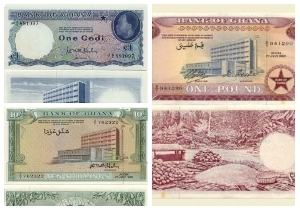Breman Essiam (C/R) June 24, GNA. The Centre for Rural Enterprises Development (CRED) Non-Governmental Organisation (NGO) has enrolled 77 children withdrawn from worst forms of child labour in the area to acquire formal education.
The NGO undertook the project in collaboration with the International Labour Organisation (ILO), the International Programme on Elimination of Child Labour and the Ajumako-Enyan-Essiam district Assembly. Breman Essiam, Ajumako Bisease, Enyan Maim, Eyan Apaa, Okuadze, and Kookwado were some of the communities where children were engaged in commercial agriculture and quarry projects, Mr. James Ampiah the Deputy Executive Director of CRED disclosed this at a durbar to celebrate World Child Day by the Ajumako District at Breman Essiam.
He said the children, aged between the ages of five and fourteen have been supplied with school material including books, pens, pencils, sandals, bags and school uniforms. Mr. Ampiah said a memorandum of understanding have been signed with the school authorities to show particular interest in the welfare of the children.
Mr. Ampiah said, 23 of the children have been enrolled as apprentices in hairdressing, auto-mechanics, electronics, dressmaking, adding that the NGO has procured equipment, including sewing machines, driers, electrical tools and other materials for the beneficiaries to open their shops after training. He said, with funding from Danish International Development (DANIDA), Government of Ghana and technical support from Community Water and Sanitation, CRED is providing training for Water and Sanitation Committees in 12 communities in Ajumako District.
Mrs.Abena Serwa-Opare the focal person for the elimination of the worst forms of child labour in the district said, any work that was hazardous or interfered with children education or harmful to the health of the child contravened the children Act 560 of 1998. She therefore urged parents and guardians to eschew the habit of using children, who are future leaders, as labourers for economic gains, but rather mobilize their resources to educate them to be useful citizens in society. 24 June 07
General News of Sunday, 24 June 2007
Source: GNA
















